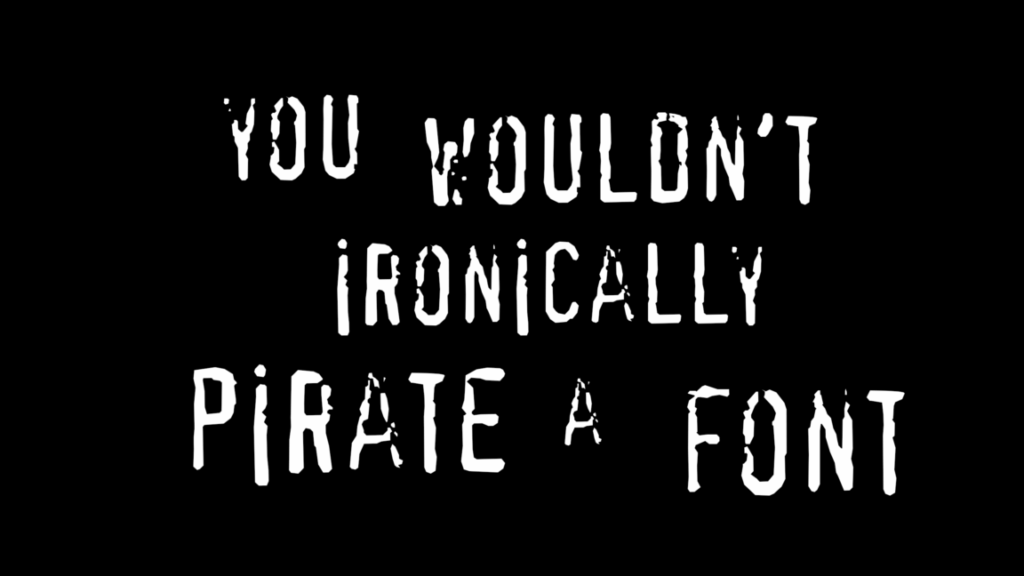Aquilina, who was speaking generally and not on the specifics of the anti-piracy campaign and its font use, said that using a font from a free source, with an “effectively implied license to use it,” could be “a good defense,” though “not a complete defense.” Typically, a rightsholder would go after websites distributing copies of their font, not after users of the end product.
Fonts used commercially that happen to be exact copies of existing and copyrighted fonts are “fairly common,” Aquilina said, “simply because of the popularity of certain fonts and a desire to use them, to create a certain aesthetic.” But, he said, there is “a very small percentage that could be, or are, litigated.” Even with software licenses at issue, a type foundry faces an uphill battle, as witnessed in the battle over Shake Shack’s typography (paywalled).
Still missing: the source of XBand Rough
Credit:
MyFonts/MonotType
So where did Xband Rough come from?
The styling of the font name, “XBAND Rough” with the first noun in all-caps, calls to mind the early online gaming network XBAND, launched in 1994 and discontinued in 1997. In some XBand packages, a similar “rough” style can be seen on the lettering. The PDF sleuth, Rib, noted that XBAND Rough “came out four years after the original” (about 1996) and was “near-identical, except for the price.”
Another Bluesky user suggests “a plausible explanation” for the font, suggesting that Xband may have licensed FF Confidential and then given it the internal name “Xband Rough.” A copy of the font with that name could have been extracted from some Xband material and then “started floating around the Internet uncredited.” In the end, though, the real answer is unclear.
We contacted the Motion Picture Association (now just the MPA, sans “of America”), but they declined to comment.
The original “You Wouldn’t Steal a Car” campaign was simple to the point of being simplistic. IP law isn’t really like “stealing a car” in many cases—as has made clearly once again by the recent Xband Rough investigation.


